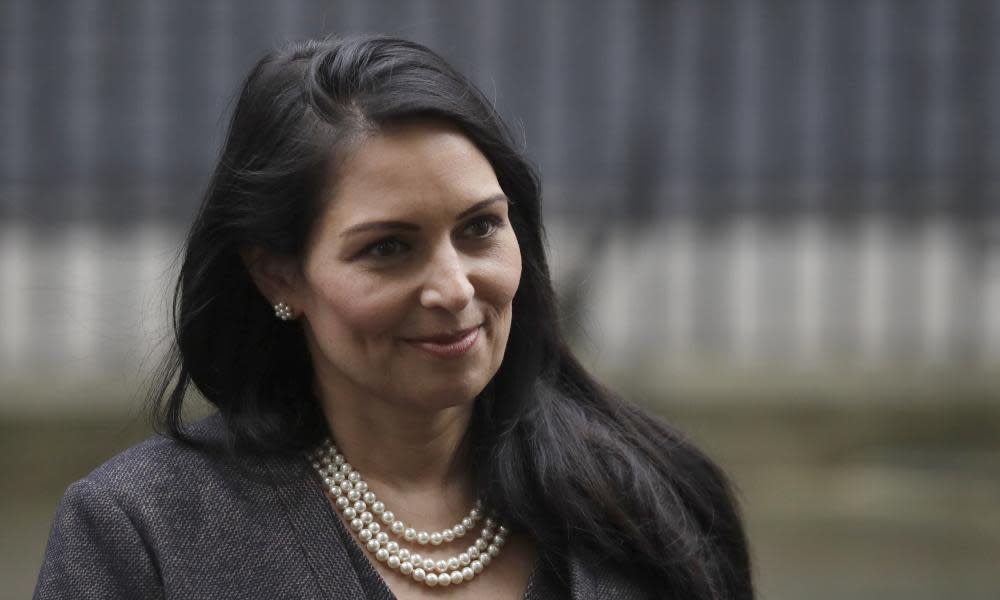Priti Patel accused of avoiding MPs’ scrutiny during national crisis

The home secretary, Priti Patel, has been accused by an influential group of MPs of avoiding scrutiny at a time of national emergency, a tranche of correspondence has revealed.
Yvette Cooper, the chair of the home affairs select committee, has written to Patel six times – most recently in a letter issued on Wednesday – in an attempt to fix a date for the home secretary to give evidence in public to the committee, but a date for a hearing has not been confirmed.
After repeatedly ignoring correspondence from Cooper, Patel replied to the committee chair on Tuesday telling her she was “disappointed at the increasingly adversarial tone of our exchanges” and declining an invitation to give evidence remotely on 15 April. She reluctantly agreed to appear before the MPs at the end of the month, but did not set a date.
Cooper, in her latest missive, points out that the justice secretary, work and pensions secretary, transport secretary and health secretary have given evidence to their select committees already or have agreed a date to do so.
The committee has been pressing Patel to provide evidence since the end of January, during which time the secretary of state has been accused of belittling officials and presiding over an “atmosphere of fear” at the Home Office. Sir Philip Rutnam resigned as permanent secretary at the Home Office, claiming constructive dismissal and accusing Patel of bullying her subordinates.
Cooper wrote on Wednesday: “Delaying until the end of the month would clearly be inappropriate given the urgency of the public information and answers that are needed.”
The letters reveal Patel has been pressing for “private briefings” instead of appearing in public but the committee declined as it believed this was “not sufficient”.
On 7 April, Patel wrote to Cooper defending the proposal, which she argued “strikes an important balance between ensuring the department receives that vital scrutiny, while ensuring the committee can receive operationally sensitive, and sometimes classified, updates at this time of national emergency.
“I am disappointed at the increasingly adversarial tone of our exchanges and I am very sorry that you have declined my offer of regular briefings with officials and ministers at the Home Office,” Patel wrote.
Last week, Cooper wrote to Patel emphasising that the home secretary had been sent four previous requests to give evidence on 27 March, 20 March, 6 March and 29 January. “No response has yet been forthcoming,” Cooper wrote.
Before the lockdown, Cooper wrote to Patel on 20 March, stating: “In the light of the escalating coronavirus crisis, we believe it is urgent and essential that we hear from you.”
A Home Office spokesperson said: “The home secretary has accepted the invitation to appear in front of the home affairs select committee before the end of April.
“As expected, she is currently leading the Home Office response during this national crisis, working tirelessly to keep the British public safe.”


